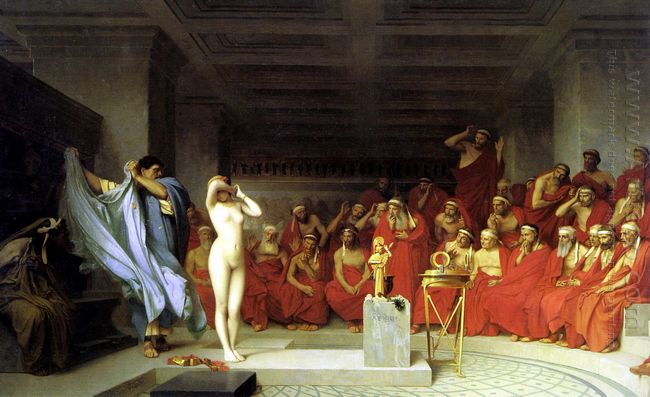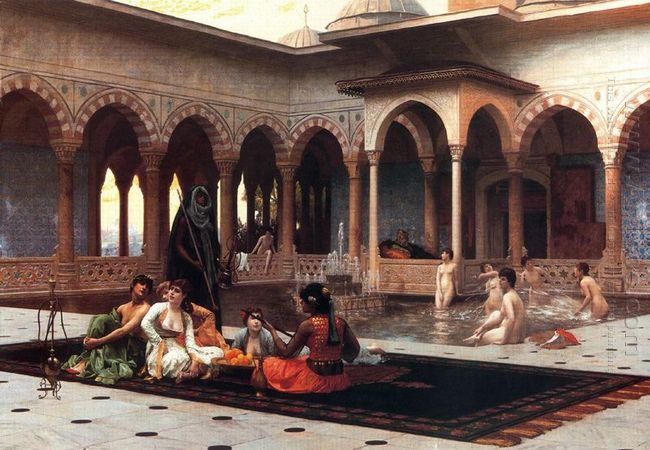Phryne before the Areopagus was made by the famous French painter and sculptor Jean-Leon Gerome, whose works fully showed the complexity and contradiction of human nature in front of the beauty. The relevant literature sporadic accounts showed that there was a famous model Phryne in the 4th century BC. She was the most beautiful woman in the history of Athens and there were a lot of interesting anecdote about her. The most famous one happened on the areopagus: generally, the beauty was not naked in the public baths. She jumped out from the sea only in the days of worship of Poseidon festival and faced the holy people. However, she was summoned to court because of blasphemy. What dramatic was at the time of trial, the attorney Hippe Reades made the defendant uncover the clothes under the watchful eyes of the people and said to the jury composed of 501 residents, “Can such a beautiful breast disappear?” Finally, the court finally sentenced the defendant not guilty. In the 19th century, the French painter Gerome also painted Phryne before the Areopagus concerning this theme.
In this painting, Phryne was in a prominent position and covered the moment her clothes were lifted with her arms. The red skin of Phryne looked very bright under the contrast of the attorney and the processing of the background and the central dark part highlighted the heroine. She was very white, charming and flawless. Her motive force was typically Greek and her slightly twisted body made the curves of the rhythm more abundant. Since she was naked in public, her subconscious actions sublimated her inner emotions. She looked very delicate, touching, somewhat shy and charming. The attorney stood on the side with very serious gesture and facial expressions and the beautiful, noble and inviolable will were reflected in his pose and expression. The judges’ mercy, comprehension or greedy and glassy eyes as well as the firm behavior or frustration fully demonstrated the humanity's complexity and contradiction. At the same time, they also reflected the beauty theme advocated during the Greek period, the beautiful purity, secretly and invincible force.






